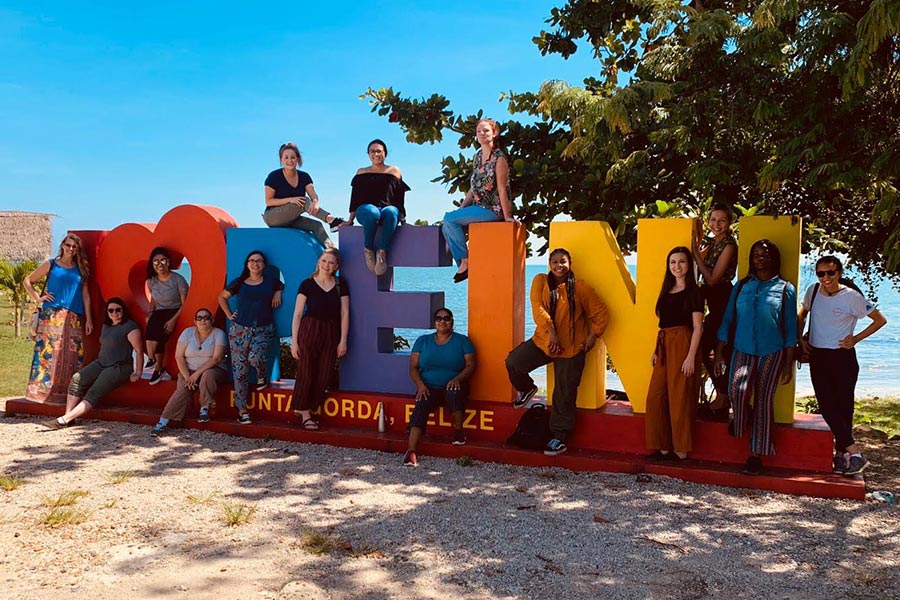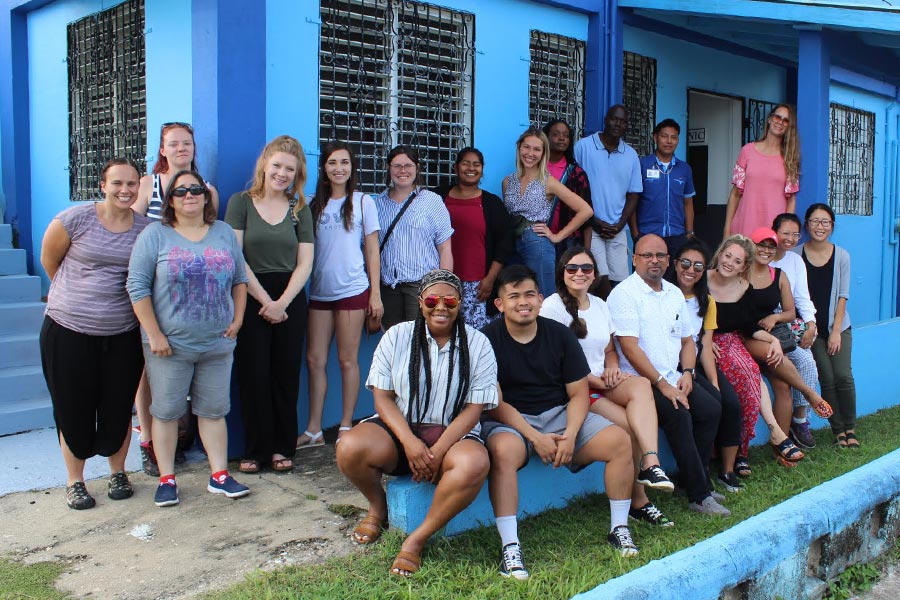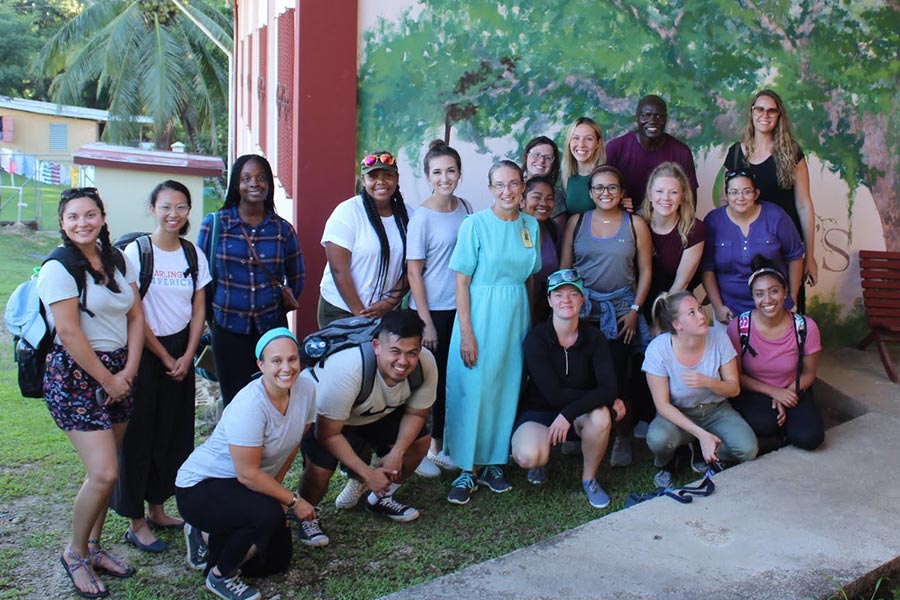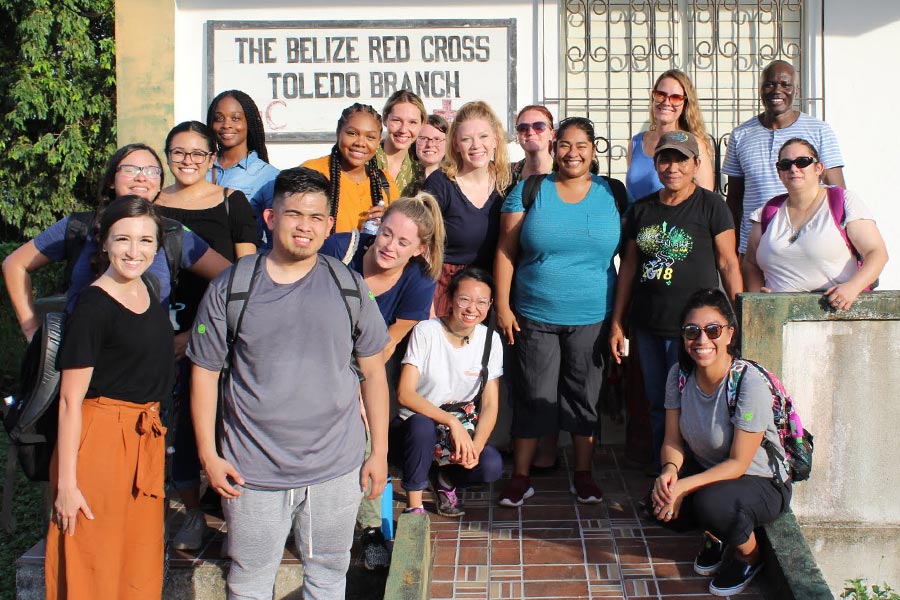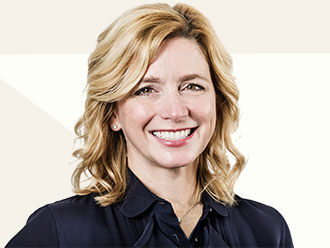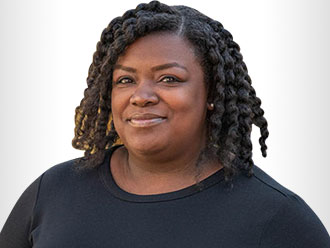Late last year, the School of Social Work expanded its global footprint with its first student/faculty study abroad course. A group of undergraduate and graduate students traveled to Belize with two social work faculty members—Associate Professor Eusebius Small and Assistant Professor in Practice Tracy Orwig—to better understand which people gain access to health care and how community residents are informed of their health options.
In Belize, the government runs hospitals and clinics and offers health services free or at low cost to citizens. Most hospitals in the generally poor country, however, are unable to perform surgeries, treat complex diagnoses, or offer treatments like dialysis due to shortages of equipment, among other issues.
“When I think about comparative health policy, it reminds me of Dr. (Martin Luther) King’s words about health care,” Dr. Small says. “He said that of all the forms of inequity, injustice in health care is the most shocking and inhumane.”
Now that the entire world is gripped by COVID-19, Samantha Crumrine, a master’s student who participated in the Belize trip, says the lessons they learned there are more relevant than ever.
“The pandemic has reiterated what I learned,” she says. “Rural communities in Belize are cut off from many of the resources in Belize City. It’s crucial for communities to share information, ideas, and solutions for social issues so that these can be implemented by the community members themselves.”
Small notes the important role social workers play in health care crises.
“For developing countries with already fragile public health infrastructure, the situation is catastrophic. Many local organizations are overwhelmed with an overstretched resource capacity. Social workers can work directly with them to support readiness efforts to mitigate the devastating impact of the disease.”
Who:
Seventeen students and two UTA faculty members
How:
As part of academic coursework in two social work classes, Comparative Health Policy and Community Health Promotion
Why:
To encourage students to consider equity in health care policy and whether everyone has a right to universal health care
Lessons they took back home:
“I realized that many aspects of my daily life, including health care, are luxuries. Firsthand exposure to cultural differences in access to care helped me to put aside personal bias and differentiate subjective truth from objective truth. I gained a more global perspective on health care issues.”
—Amber Hovanec-Carey, master’s student
“There is a wealth of wisdom and experience held by those around me, if I would simply take the time to ask questions and listen to them. I noticed this among my classmates who held unique backgrounds as well as among locals who we would meet in public settings.”
—Joy Rong, master’s student
“I learned how fortunate we are in the United States to have preventative health care. In rural Belize, women do not have the opportunity to have mammograms and preventative breast cancer screenings. Shortly after returning from Belize, my doctor found a place of concern in my own breast, and I received a mammogram, sonogram, and biopsy within two weeks. My friends in Belize do not have this option. This experience moved me to advocate for more preventative and lifesaving health care for women in Belize.”
—Samantha Crumrine, master’s student
